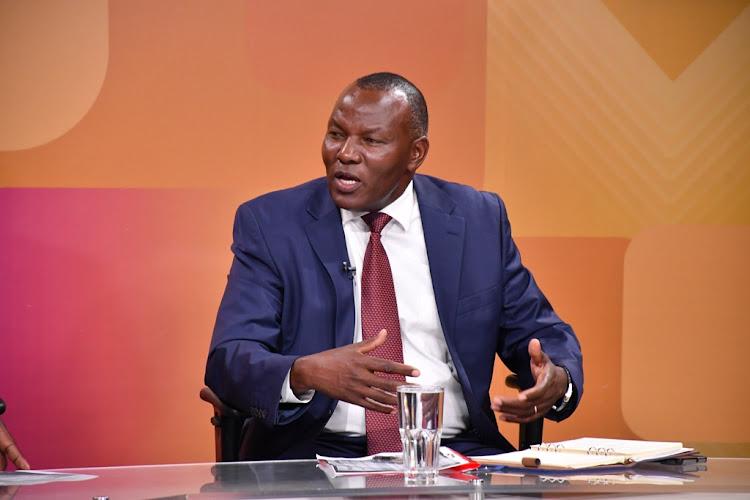Revamp Education Funding: Experts Urge MPs to Halt Bursaries for PhD, Masters Students
The NG-CDF ought to be allocated for the construction of essential educational facilities and the implementation of developmental initiatives within constituencies, rather than being utilized to sponsor postgraduate students’ bursaries at local and international universities.
The above-mentioned assertion comes from a group of education specialists.
The specialists express their dismay witnessing Ph.D. and Masters students entering educational institutions while proudly displaying checks funded by the National Government-Constituency Development Fund.
“It’s unfair for someone studying for a Master’s degree to get CDF funding; it’s immoral,” Maliba Arnold Nyajayi, the Strategic Communication adviser in the office of UDA Secretary General offices said.
He mentioned that while the Constituency Development Fund (CDF) has made significant contributions to financing infrastructure in primary and secondary schools, there is a need to increase the financial allocation to this sector.
“CDF was the pilot project for the devolved government era. But it is not a bursary because of the way it is structured. Sometimes all students in a school get a flat rate of Sh500 to Sh5,000 each, which might not help all the needy students,” he said.
Dr. Vincent Gaitho, the Secretary General of Kenya’s National Association of Private Universities, emphasizes the significance of the NG-CDF fund for numerous students nationwide.
“Poverty in Kenya is on the rise due to global climate change, which is marginalizing more families and the depreciation of Kenya shilling. Any money for the education sector is welcome. Thousands of students benefit from CDF bursaries” he said.
Members of Parliament allege that the release of funds from the Treasury to the Constituency Development Fund (CDF) has been postponed for over seven months.
Dr. Gaitho, who serves as the chairman of the university council at Mount Kenya University (MKU), urged Members of Parliament to concentrate on directing the Constituency Development Fund (CDF) towards particular development initiatives within their respective localities.
“Each constituency is unique. Area MPs should have projects that will put money in the pockets of their constituents. For instance, our farmers have too much waste after every harvest – milk, maize, vegetables. The mangoes season is coming and local markets will soon be flooded with mangoes. We need to reduce this waste,” he said.
Dr. Gaitho suggested the introduction of a parliamentary bill to empower bursary funds to function as revolving funds.
ALSO READ:
- Riggy G Rises from the Ashes! Gachagua Launches His Own Party, Blasts Liar Number One
- Mob Justice Token Thieves Busted and Beaten by Angry Residents in Kerugoya
- Mob Fury in Kirinyaga: Villagers Chase Nyumba Kumi Elders After Man Is Beaten to Death Over Grass Slasher
- High Court Orders Government to Appoint Nzau Musau and Lucy Minayo to Media Complaints Commission
- Kindiki Blasts Hired Goons as Chaos Erupts at Gachagua’s Party Launch in Lavington Shootout Drama
“Those who benefit from bursaries should pay back. Let’s make it sustainable through a revolving fund since we are developing human capital that eventually should become useful to the country,” he added.
The consensus among experts is that while a significant portion of the national budget is allocated to education, the majority of these funds are utilized for covering salaries and other ongoing expenses.
Philip Pande, an adviser on Youth Inclusion, mentioned that the Ministry of Education has been one of the most generously funded ministries in Kenya since the country gained independence.
“It is time to emphasize TVET (Technical and Vocational Education and Training) as opposed to herding all students into various universities. The African Development Bank (ADB) says they are supporting TVET to ensure that the average student does not miss out on technical training,” he said.
Simultaneously, the specialists concurred that a gap persists between local universities and the integration of graduates into the workforce, leading to a phenomenon of skilled individuals relocating abroad.
Dr. Gaitho mentioned that due to the contraction of the Kenyan economy, students are now pursuing employment opportunities that are beneath their qualifications, as the economic prospects are limited.
“There is a lack of innovation; we are an importing country. Containers come in full of imported goods but are being shipped out empty. Those with resources and money are only thinking about putting up housing development projects, many of which are less than 50 percent occupied,” he said.
Dr. Gaitho reiterated the need for enhanced cooperation between universities and industries to bridge the disparity between the skill sets of recent college graduates and the skills that the industry is currently seeking.
“Universities prepare students for international markets. Those who have qualified for university but opt to attend TVET institutions should be encouraged,” he added.
Revamp Education Funding: Experts Urge MPs to Halt Bursaries for PhD, Masters Students
